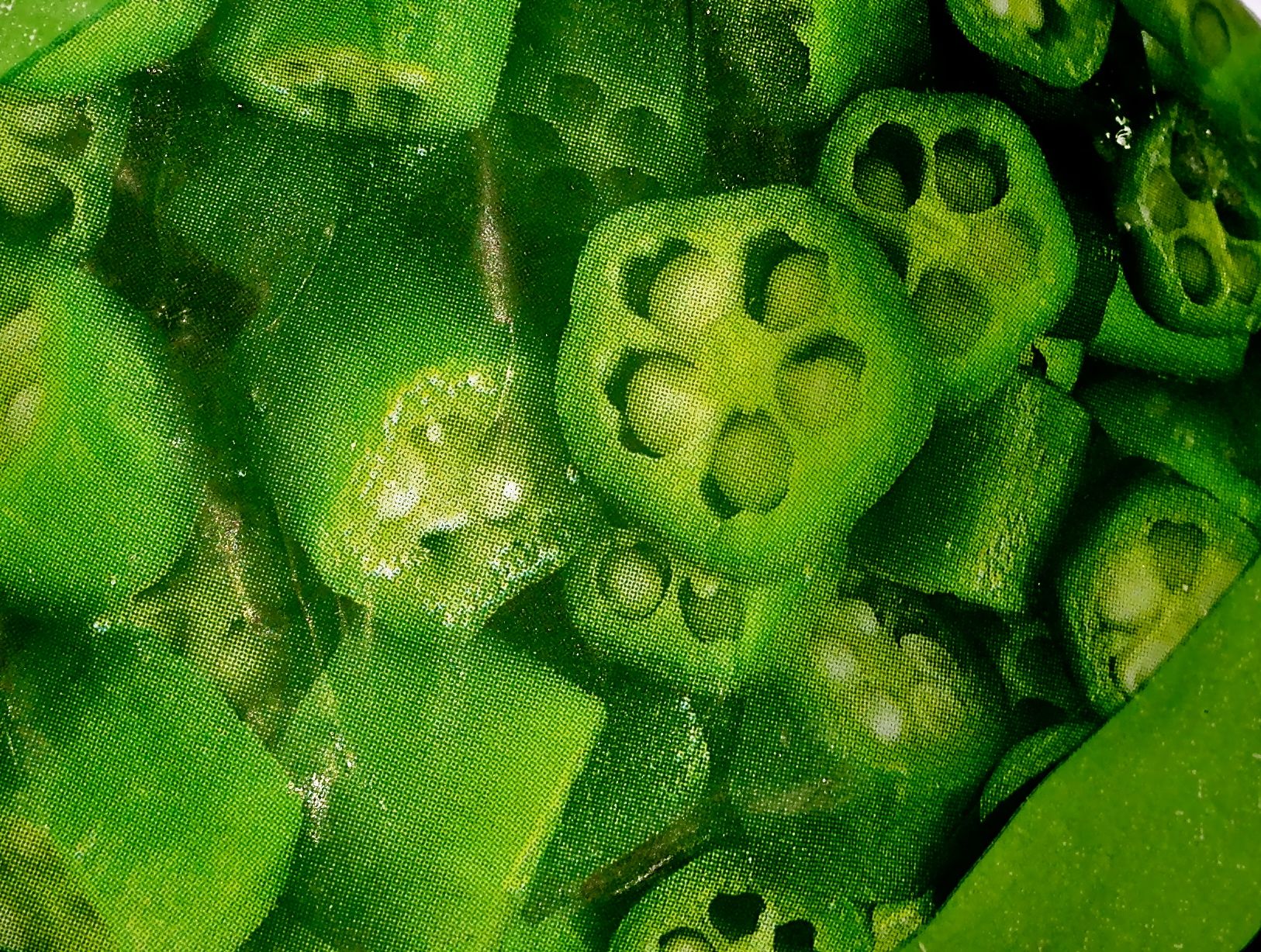I have been crushing on okra for as long as I can remember. Lady’s finger (as we called it in India) was love at first bite, and family stories confirm that it has always been my favorite vegetable. As a child, I probably had a gut feeling that okra was good for me, and now it turns out that okra is indeed, phenomenal for the gut! Here are four important reasons why you should make this vegetable a part of your diet.
It has mucilage, darling!
What do slippery elm, marshmallow root, chia seeds, aloe, prickly cactus and okra have in common? It”s mucilage! What is mucilage? Mucilage is a polysaccharide, a gelatinous substance present in some plants and seeds and has tremendous healing potential. Due to its slippery nature, it can soothe and heal irritated and inflamed tissues in our digestive systems, making it particularly beneficial for digestive ailments like gastritis, ulcers, irritable bowel syndrome, Crohn’s disease, etc.
A recent 2014 study published in the journal PLOS One showed that polysaccharides in immature okra pods possessed an anti-adhesive property that had the ability of dislodging harmful bacteria from the stomach lining. The study reported that okra’s polysaccharides were particularly effective in inhibiting the adhesion of Helicobacter pylori (H.pylori) to stomach tissue. H.pylori is that notorious spiral shaped bacteria; it penetrates the stomach’s protective lining, weakens it and makes it vulnerable to damage from stomach acids and left unchecked, increases the risk of stomach cancer. Eat okra regularly to send H. pylori and other harmful microorganisms on their merry way down the colon!
It has Fiber, the nice kind.
We all know that fiber is good for us. It helps with maintaining a healthy weight, normalizes blood sugar levels, lowers cholesterol, prevents constipation, etc. Fiber is so much more than the ‘roughage’ that we normally associate it with. From a satiety perspective, fiber is that part of a food that makes us feel full, whole, grounded and strong. When we use the phrase, ‘with every fiber of my being’ it describes something deep-down, it means, down to the tiniest, finest thing you made of. Structurally and symbolically, fiber in foods is similar, a component that keeps a food together and imparts it with integrity and strength.
Okra has both types of fiber, soluble and insoluble. It has a good amount of soluble fiber, to promote healthy cholesterol levels, and insoluble fiber for a healthy digestive tract. One hundred grams of the vegetable contribute towards 10% of our daily fiber intake. In addition to the quantity of fiber, okra gives us quality fiber. Unlike the hard corrosive fiber in some grains, okra contains a smooth benevolent fiber (thanks to its mucilage content), that gently slides along the colon, sweeping up toxins along the way.
It Helps with Kidney Function/Disease.
A 2005 study from China published in the Jilin Medical Journal reported that okra was beneficial for patients suffering from kidney disease. The study divided the participants into two groups, group 1 ate a traditional diabetic diet, while mobile casino group 2 ate okra daily in addition to following the traditional diabetic diet. Six months later the okra group not only saw a reduction in their urine protein and uric acid levels, but they were significantly happier too. I’m kidding about the happy part, but it might as well have been a side effect, right? Okra, thanks to its stellar nutritional profile, makes you healthy and joyful, which brings me to the next reason why you should regularly eat it.
It is Incredibly Nutrient Dense.
A cup of okra provides 50% of the daily requirement of Vitamin K! In addition to aiding in blood clots, new research suggests that Vitamin K is just as important as Vitamin D in immune support, bone health and has the potential to protect against several cancers.
Dr Mercola says, “Vitamin K has also been found beneficial in the fight against other cancers, including liver, colon, stomach, nasopharynx, and oral cancers, and some studies have even suggested vitamin K may be used therapeutically in the, treatment of patients with lung cancer, liver cancer, and leukemia.”
And Vitamin K is just the beginning.The vegetable also contains massive amounts of Vitamin C (a potent antioxidant and excellent for immune support), Folate (a must for women of child bearing age), Vitamin B6 (for those dreaded PMS mood swings and blood sugar control) and magnesium (for PMS, anxiety, migraines, and much more)!
What is Left to Say?
Okra is a super-food. It is super because it has substantial amounts of fiber, vitamins, minerals and it has that wonderful mucilage that I raved about earlier. It is one of those foods that is more texture than taste. If you are scared of the slime, sautee or pan fry it, but please don’t ignore it. This health edit is a must-try.
Sources:
Web MD: H. pylori (Helicobacter pylori)
PLOS: A Peer Reviewed Open Access Journal; Antiadhesive Properties of Abelmoschus esculentus (Okra) Immature Fruit Extract against Helicobacter pylori Adhesion
Jilin Medical Journal: The clinical research of Okra in treatment of diabetic nephropathy
Spirit Foods; Okra: A Mucilaginous Vegetable That Sweeps the Colon of Waste
Dr. Mercola; Could Vitamin K Hinder Future Cancers?
